Question
Currently working on this task, would really appreciate some guidance. Attached below is the description of the task: At the moment, my code is still
Currently working on this task, would really appreciate some guidance.
Attached below is the description of the task:
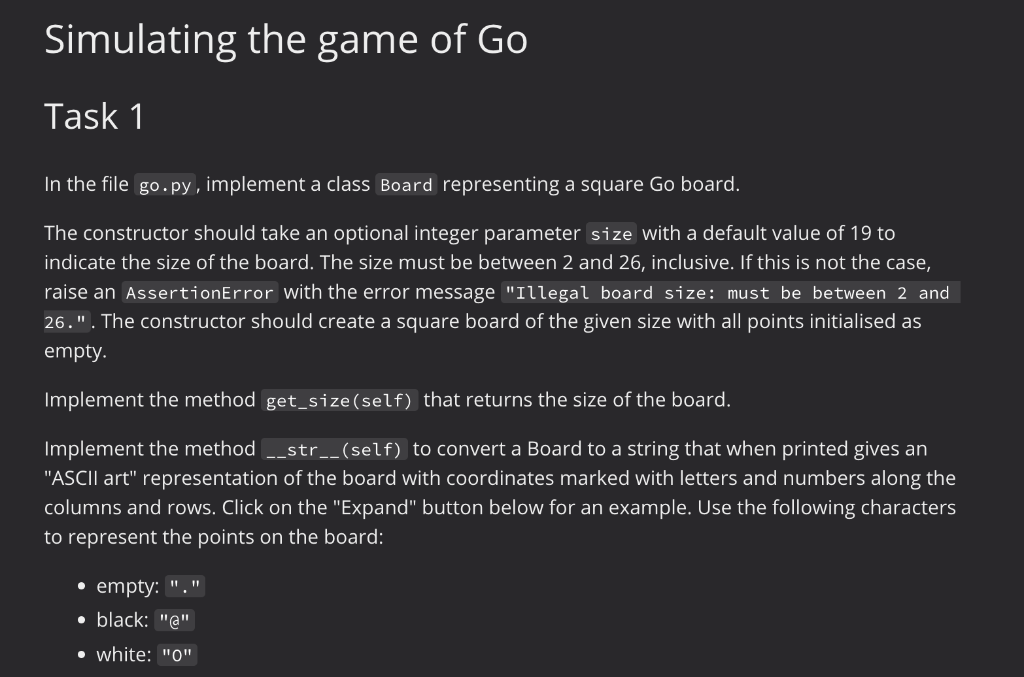
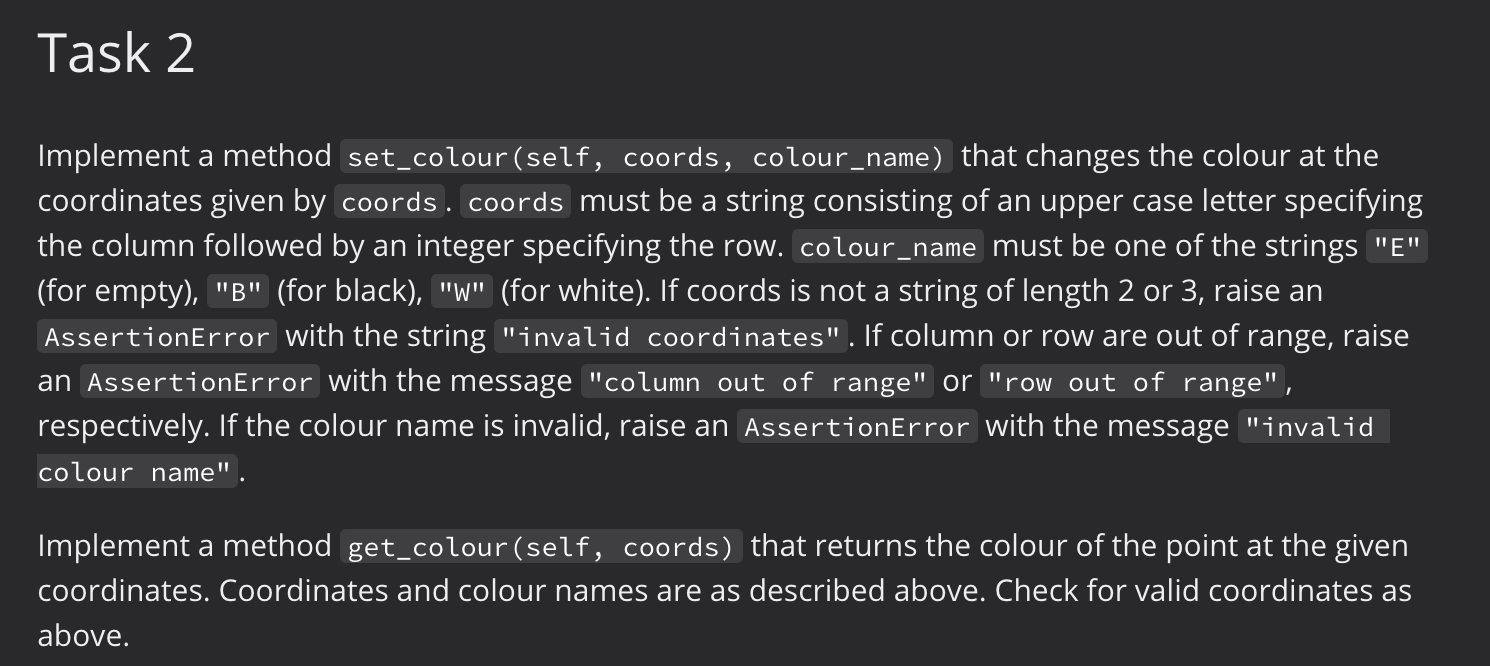
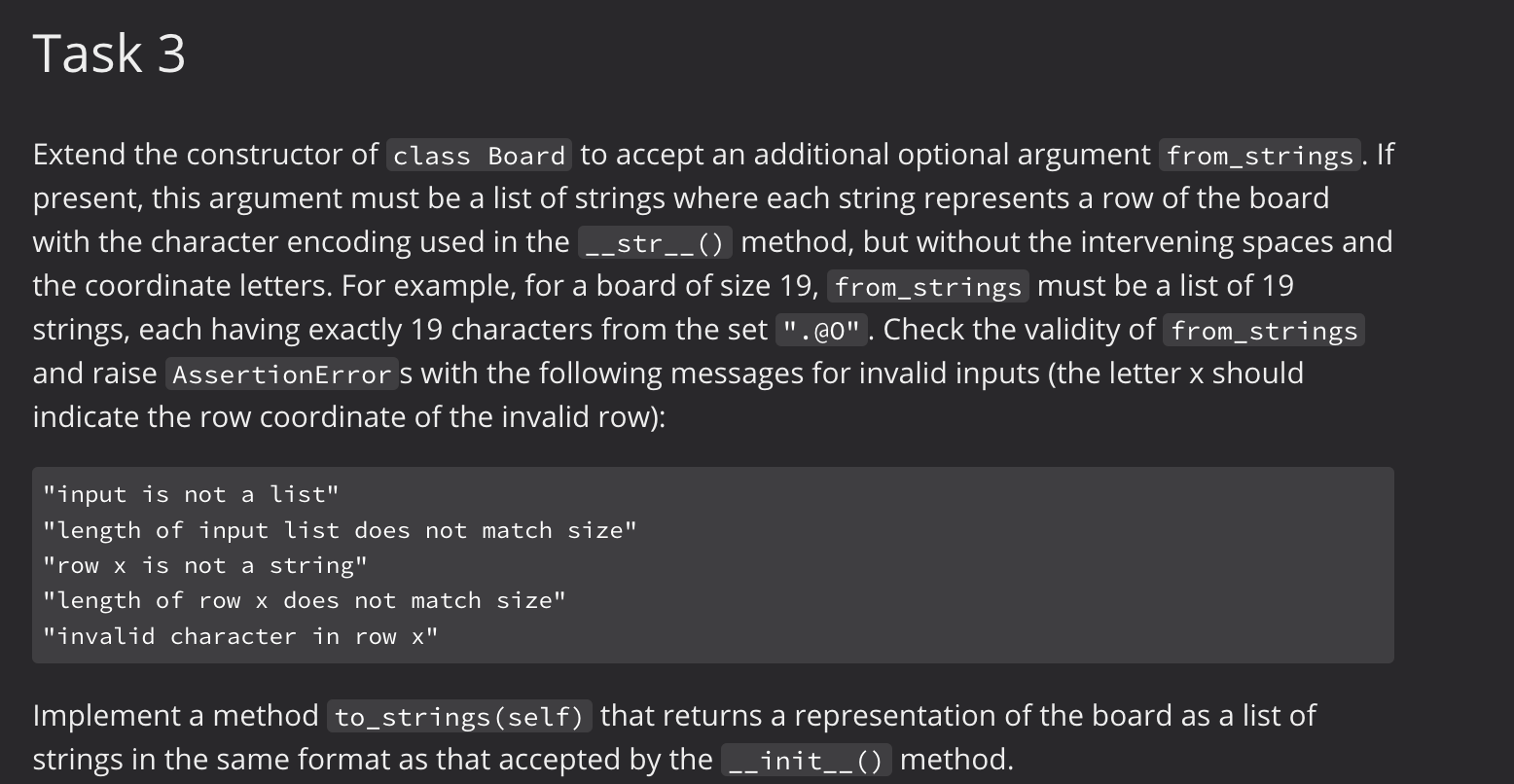

At the moment, my code is still not working for the following test cases, so I am wondering about the possible steps I should take to make this work:


Here is my current code:
from collections import deque
def load_board(filename): result = " " with open(filename) as f: print(f) for index, line in enumerate(f): if index == 0: result += ' ' + ' '.join([chr(alphabets + 65) for alphabets in range(len(line) - 1)]) + ' ' result += f"{19 - index:2d}" result += ' ' + ' '.join(line.strip()) + ' ' return result
def save_board(filename, board): with open(filename, "wt") as f: f.write(str(board))
from string import ascii_uppercase as letters
class Board(): points = {'E': '.', 'B': '@', 'W': 'O'}
def __init__(self, size=19, from_strings=None): assert 2
def get_size(self): # Returns the size of the grid created by the constructor return self.size def __str__(self): # creating the grid padding = ' ' # Creating a variable with a space assigned so that it acts as a padding to the rows that have a single digit heading = ' ' + ' '.join(letters[:self.size]) # Alphabetical heading is created lines = [heading] # adding the alphabetical heading into a list named lines to which the rows will be added later for r, row in enumerate(self.grid): if len(self.grid) 9: # for rows 1 to 9 the single digits are aligned according to the first digit from the right of the two digit rows if (self.from_strings): line = f'{self.size - r} ' + ' '.join(self.from_strings[r]) else: line = f'{self.size - r} ' + ' '.join(self.points[x] for x in row) line = padding + line lines.append(line) else: if (self.from_strings): line = f'{self.size - r} ' + ' '.join(self.from_strings[r]) else: line = f'{self.size - r} ' + ' '.join(self.points[x] for x in row) lines.append(line) return " ".join(lines) + ' '
def _to_row_and_column(self, coords): # destructure coordinates like "B2" to "B" and 2 alpha, num = coords colnum = ord(alpha) - ord('A') + 1 rownum = self.size - int(num) + 1 assert 1
def set_colour(self, coords, colour_name): rownum, colnum = self._to_row_and_column(coords) assert len(coords)==2 or len(coords)==3,"invalid coordinates" assert colour_name in self.points,"invalid colour name" self.grid[rownum - 1][colnum - 1] = colour_name
def get_colour(self, coords): rownum, colnum = self._to_row_and_column(coords) return self.grid[rownum - 1][colnum - 1]
def to_strings(self): #padding = ' ' lines = [] for r, row in enumerate(self.grid): if self.from_strings: lines.append(''.join(self.from_strings[r])) else: lines.append(''.join(self.points[x] for x in row)) return lines
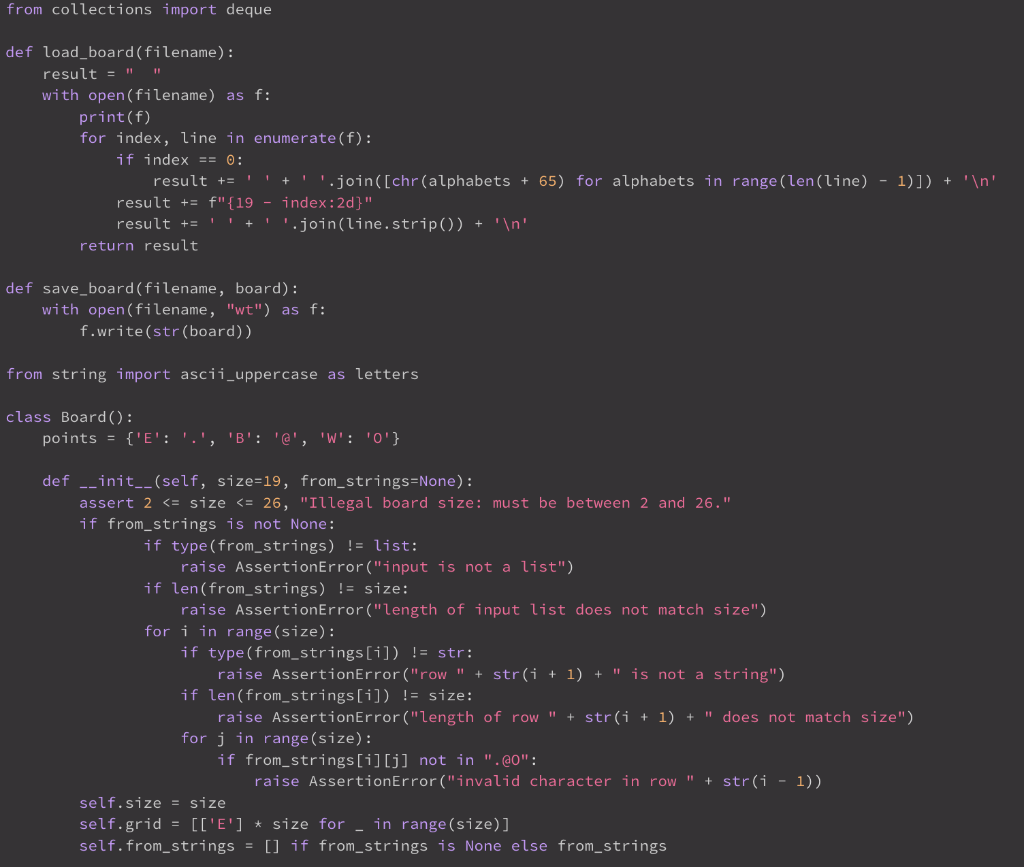
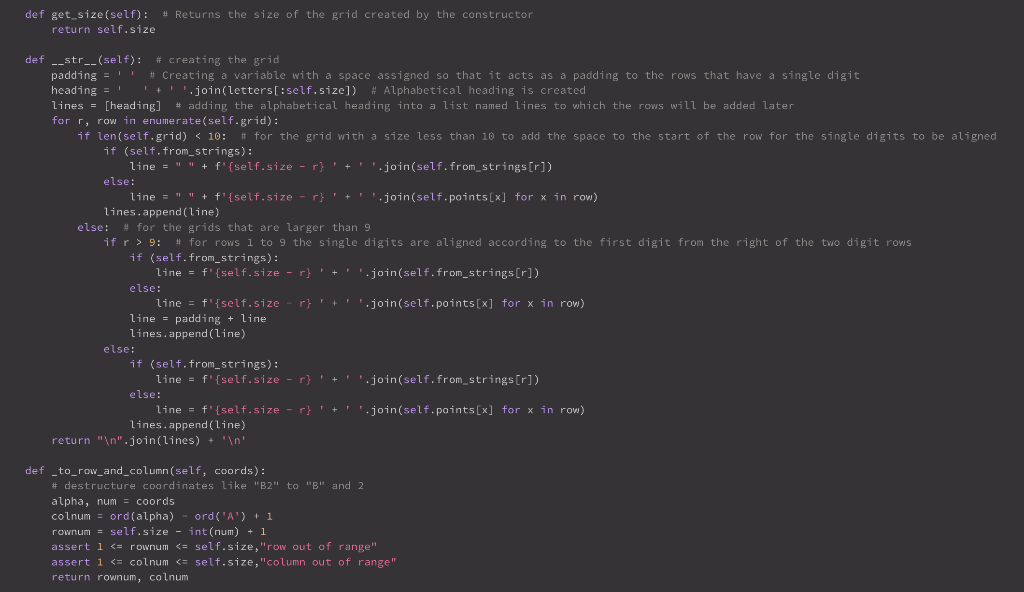
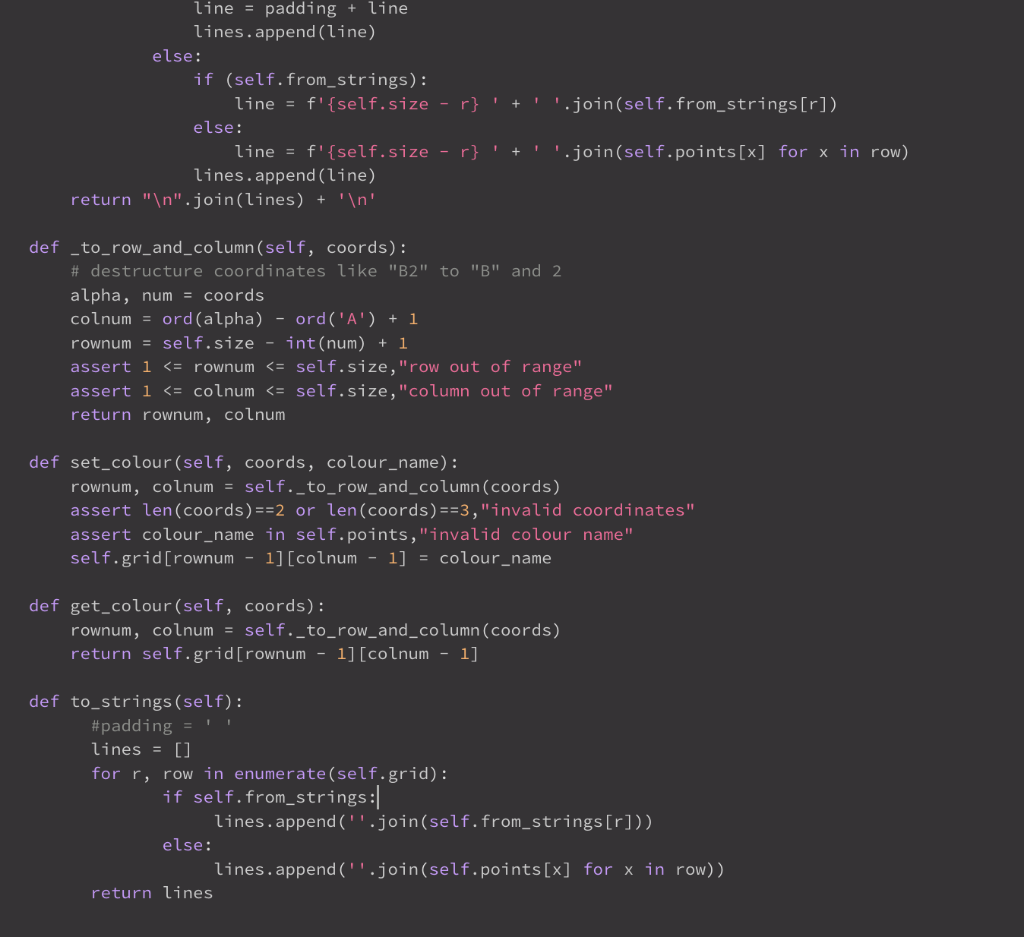
Step by Step Solution
There are 3 Steps involved in it
Step: 1

Get Instant Access to Expert-Tailored Solutions
See step-by-step solutions with expert insights and AI powered tools for academic success
Step: 2

Step: 3

Ace Your Homework with AI
Get the answers you need in no time with our AI-driven, step-by-step assistance
Get Started


